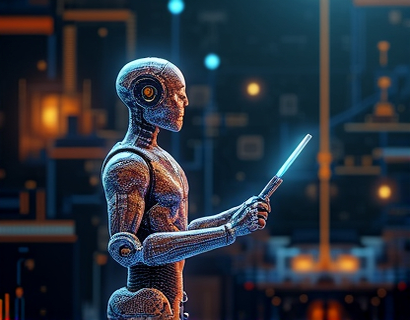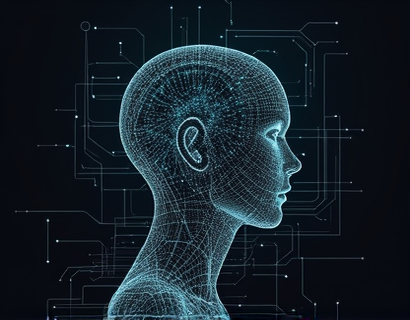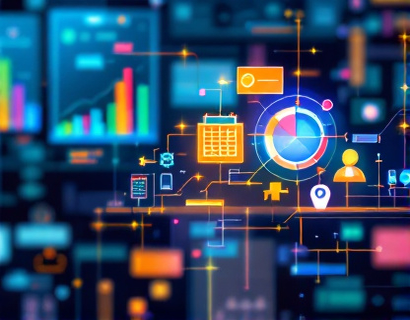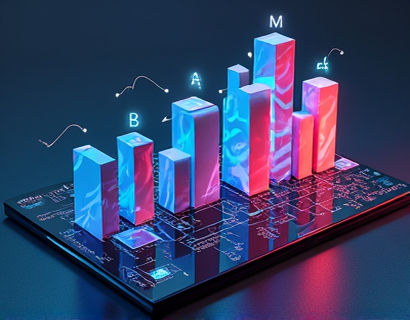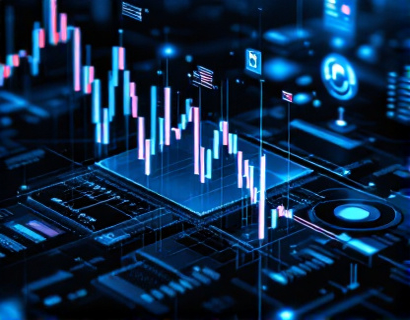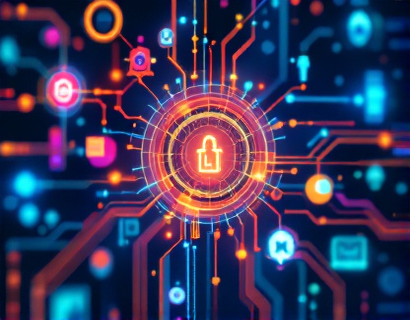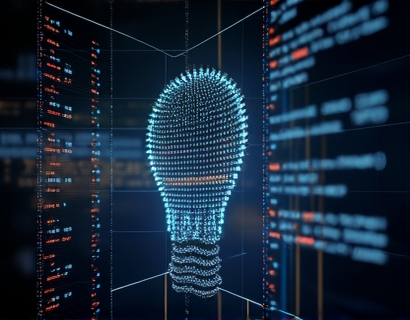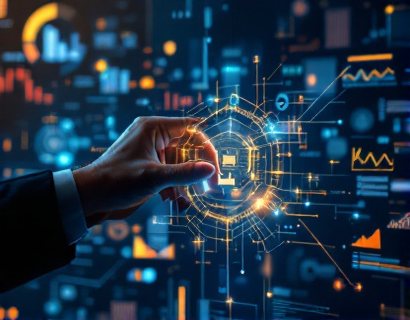Unlocking Next-Gen Digital Transformation: Leveraging AI and Blockchain for Innovative Solutions
The digital landscape is undergoing a profound transformation, driven by the convergence of artificial intelligence (AI) and blockchain technology. This synergy is not just a trend but a fundamental shift that promises to redefine how businesses operate, innovate, and deliver value. The integration of cryptocurrency and AI is opening new avenues for enhanced efficiency, security, and innovation, making it essential for tech-savvy innovators and early adopters to understand and leverage these technologies.
At the core of this transformation is the ability of AI to process and analyze vast amounts of data at unprecedented speeds, providing insights that were previously unattainable. When combined with the immutable and transparent nature of blockchain, the potential for creating robust, secure, and efficient systems becomes immense. This article delves into the intricate relationship between AI and blockchain, exploring how their integration can drive growth and provide a competitive edge in the evolving digital landscape.
Enhanced Efficiency Through AI and Blockchain
One of the most significant benefits of integrating AI and blockchain is the enhancement of operational efficiency. AI algorithms can automate routine tasks, reduce manual errors, and optimize processes in real-time. For instance, in supply chain management, AI can predict demand, optimize inventory levels, and streamline logistics, while blockchain ensures transparency and traceability at every step. This dual approach not only speeds up operations but also reduces costs and improves accuracy.
In the financial sector, AI-driven algorithms can analyze market trends, detect fraudulent activities, and automate trading processes. Blockchain technology, with its decentralized ledger, ensures that all transactions are recorded securely and transparently. This combination minimizes the need for intermediaries, reduces transaction times, and lowers fees, making financial services more accessible and efficient.
Security Reinforced by AI and Blockchain
Security is a paramount concern in the digital age, and the integration of AI and blockchain offers a robust solution. AI can detect and respond to security threats in real-time, identifying patterns and anomalies that traditional security systems might miss. Machine learning models can be trained to recognize suspicious activities and automatically trigger alerts or countermeasures, enhancing the overall security posture of an organization.
Blockchain, with its cryptographic hashing and decentralized consensus mechanisms, provides an additional layer of security. Once data is recorded on a blockchain, it cannot be altered without consensus from the network, making it highly resistant to tampering and cyber attacks. This immutability ensures that sensitive information remains secure and trustworthy. For example, in healthcare, patient records can be stored on a blockchain, ensuring that only authorized personnel can access and modify the data, while AI can monitor for any unauthorized access attempts.
Innovation Driven by AI and Blockchain
The combination of AI and blockchain is not only about efficiency and security; it is also a catalyst for innovation. Businesses can leverage these technologies to create new products and services that were previously unimaginable. For instance, in the realm of smart contracts, blockchain provides a platform for self-executing contracts with the terms directly written into code. AI can enhance this by analyzing data to automatically trigger contract actions based on predefined conditions, reducing the need for manual intervention and increasing reliability.
In the creative industry, AI-generated content combined with blockchain-based ownership and royalties management can revolutionize how artists and creators monetize their work. AI can produce music, art, and literature, while blockchain ensures that creators receive fair compensation for their work, with transparent tracking of ownership and distribution. This synergy opens up new revenue streams and empowers creators in ways that traditional models cannot.
Case Studies: Real-World Applications
Several industries are already reaping the benefits of AI and blockchain integration. In the logistics sector, companies like Maersk and IBM have developed TradeLens, a blockchain-based platform that uses AI to optimize global trade processes. TradeLens provides real-time visibility into shipments, reduces paperwork, and enhances collaboration among all stakeholders, leading to faster and more reliable delivery services.
In the energy sector, blockchain and AI are being used to create decentralized energy markets. Platforms like Power Ledger use blockchain to enable peer-to-peer energy trading, with AI optimizing the distribution and consumption of renewable energy. This not only promotes sustainability but also empowers consumers to take control of their energy usage and costs.
Challenges and Considerations
While the potential of AI and blockchain is vast, there are challenges that need to be addressed. One of the primary concerns is the regulatory landscape. As these technologies evolve, governments and regulatory bodies are still catching up, leading to a patchwork of regulations that can hinder adoption. Businesses must stay informed about regulatory changes and ensure compliance to avoid legal issues.
Another challenge is the technical complexity involved in integrating AI and blockchain. Developing robust systems that can handle the computational demands of AI while maintaining the security and scalability of blockchain requires expertise and resources. Organizations should invest in skilled personnel and partnerships to overcome these technical hurdles.
Future Outlook: The Next Evolution
The future of digital transformation is bright, with AI and blockchain continuing to evolve and converge in innovative ways. As technology advances, we can expect to see more sophisticated applications that further enhance efficiency, security, and innovation. The rise of edge computing, for example, combined with AI and blockchain, can enable real-time data processing and decision-making at the edge of the network, reducing latency and improving performance.
Moreover, the development of interoperable blockchain platforms will facilitate seamless integration across different systems and industries, creating a more connected and efficient digital ecosystem. AI-driven analytics will become more advanced, providing deeper insights and more accurate predictions, further driving business growth and competitiveness.
In conclusion, the integration of AI and blockchain is not just a technological trend but a fundamental shift in how we approach digital transformation. By leveraging these powerful tools, businesses can unlock new opportunities, enhance their operations, and stay ahead in an increasingly competitive landscape. As tech-savvy innovators and early adopters, embracing this synergy is crucial for staying relevant and thriving in the next generation of digital solutions.








